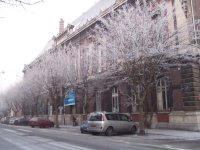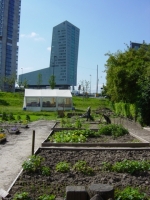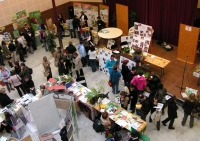A house of partnerships, a regional network

The Regional House of Environment and Solidarity (MRES in French) is an NGO (association in French) by the law of July 1, 1901. It was created in 1978 under the name of House of Nature and the Environment. Its members, hundreds of NGOs involved in the fields of nature, environment, solidarity and the human rights.
A tool for associations and democracy
The MRES has been designed since its creation to facilitate the life and development of partnership activities by running an open place dedicated to information and services.
The MRES carries out 3 main tasks :
– Logistical support to its member associations
– Driving and animating the network
– Coordination of the expression associated
In addition to this, the MRES runs a Regional Center for Information and Documentation specialized in Environment and Sustainable Development.
A comprehensive approach from the beginning

The creation of the House of Nature and Environment (MNE) is the result of a past election agreement between the city of Lille and a dozen NGOs which lead to open a place in that city, "where could be settlel all the NGOs from Lille involved in ecology. Ecology is, therefore, understood in its broadest sense : environmental protection and species, energy problems, social environment, consumption and recycling struggle against waste and industrial pollution.
The MNE opened its doors in 1979 in "23 Rue Gosselet" where it still sits and works, in a humanistic perspective in order to facilitate the development of its members.
From challenging and proposing alternatives to the dominant economic model, the MNE has hosted since its inception, with the activists of nature and environment, associations of consumers, organic farmers , defenders of human rights and equality in trade between North and South.
In June 2006, the House of Nature and Environment (MNE) became the Regional House of Environment and Solidarity (MRES) in order to better represent the diversity of member associations.
A partnership management
After a period of co-management with local authorities, the MRES has now been managed only by representatives of associations since 1999.
The 20 board members (which are issued from the associations) meet every two months. The monitoring of each activity is done by a board member : commissions, multiple instruments within information, consultation and democracy are central priorities of the Board Council.
Common values ...

The MRES is a mobilizing tools that seeks to reconcile :
– Sustainable development and environment,
– The satisfaction of men and the protection of the environment from a long-time perspective,
– Solidarity and individual development,
– Tolerance and convictions
– Local and global
The network of the MRES and its member associations is then characterized by the search of consistency between values, actions and behaviors. All this is included in its Charter.
A tool which is rich of convictions, honesty, enthusiasm and experience to share and develop.


